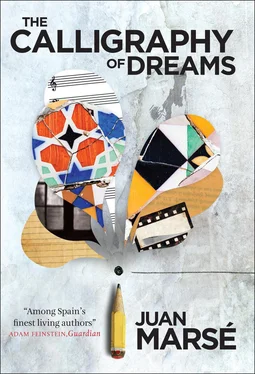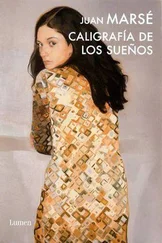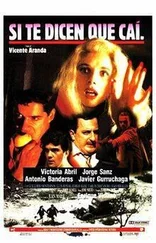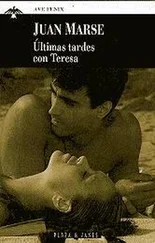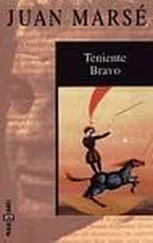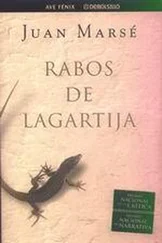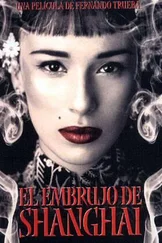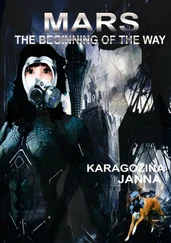“I know what she likes.”
“Yes, but you never remember.”
His father stares at him for an instant.
“Alright, Son, get it off your chest. Any more complaints? Hurry up, I don’t have much time.” He takes another sip of brandy and turns his attention back to the clasps on his case. “Well, let’s leave it for now. I want you to go to the Mirasol bar as fast as you can. Do you know where that is?”
“I think so.”
“It’s in Plaza Gala Placidia, opposite Atracciones Caspolino. You went there once with me and Uncle Luis.” He stares at him again, then adds more gently: “Now listen carefully, Son. You’re to take this case to the bar, and do exactly as I tell you. There’s nothing inside that might interest you, so don’t bother opening it. When you reach the Mirasol, you’ll see Uncle Luis sitting out on the terrace, but you’re not to say hello to him. Act as if you didn’t know him. He’ll not show any sign he knows you either, or say a word to you. Go straight into the bar and order a soft drink at the counter. Make sure you don’t let go of the case at any time. While you’re drinking your drink, Uncle Luis will come in to go to the toilet, but you’re to pretend you haven’t seen him. When he’s back sitting out on the terrace, ask the waiter where the toilet is, pay for your drink, and go for a pee. You’ll see another case the same as this under the washbasin; take it and leave this one in its place. When you come out of the toilet, don’t pause at the bar, but go straight into the street and come running home. Give your mother the case, and help her with whatever she asks you to do. Got all that?”
“Of course.”
“Okay, take this, and be very careful. Wash your face and comb your hair before you go.”
Contrary to his expectation, the case is not heavy. He is on the verge of asking what’s in it, but intuits that he should not. His father looks at him as if he has read his mind. He has another errand for him, and further instructions:
“Let’s see how you get on. Then I want you to deliver these letters.”
He fans himself with them, still holding the brandy glass in the same hand. He looks at his son uncertainly.
“I don’t like having to ask you this, and your mother will be annoyed when she finds out. But the way things are, it’s better she stays at home.”
He hands Ringo the letters. None of them has a name or address on it.
“Where do I have to take them?”
“Your mother will tell you when the time comes. For now, just remember: what you don’t know, you can’t tell if you’re asked.”
“What would that be?”
“Whatever.”
That errand is for later, he explains; first comes the Mirasol bar, where he has to behave completely naturally at all times, without attracting any attention.
“Will you be able to do that, Son? Can I count on you?”
“Of course.”
“By the time you’re back, I’ll be gone.” He stands up at last, and goes through the contents of the pockets of his trousers, jacket and raincoat, emptying them all out onto the table: cigarettes, tin lighter, handkerchief, keys, purse and loose change. Then he quickly puts it all back in the pockets. “I suppose your mother will tell you some things, if she thinks it’s advisable…You’ll get instructions about delivering these letters and anything else that’s necessary. I probably won’t be back for a long while, so you’ll have to look after our Alberta. I know you will, and that you’ll behave … Later on we can talk about your future, about a job that will suit you, and so on. Alright?”
Ringo nods, head on his chest. He still thinks his father is not really concerned about whatever the future may hold for him, whatever his aspirations might be, and that only his mother cares. At the same time, he suspects that this might be a real goodbye, and is worried it might mean an embarrassing hug, and even, God forbid, a kiss. He cannot recall his father ever giving him one, or that he ever wanted or expected to receive one on any occasion. He has never missed any disgusting kiss, and has no wish to get one now: he has grown used to the tap on the cheek, the slap on his back, or just a wink. But the Rat-catcher surprises him with a sort of affectionate shuffle, suddenly flinging an arm round his shoulders, without looking at him, so quickly he only has time to notice once more the faint lingering smell of roast coffee on his jersey.
“I know I can rely on you, pumpkinhead. Take this for the drink and the tram.” He gives him three pesetas. “Will you remember to do everything the way I told you?”
“Of course.”
“Off you go then. Get off at the Rambla del Prat, and the Mirasol’s a stone’s throw away.”
Everything goes according to plan, apart from taking the tram. Ringo decides to go there and back on foot, running part of the way, spending money only on the soft drink. It’s a sunny autumn day, almost hot. Everything seems normal and unchanging: the trams screech as they cross Plaza Lesseps, there’s not much traffic, two beggars are dozing on the steps of the church; in Calle Salmerón and the Rambla del Prat people go about their own business either eagerly or reluctantly, grey shoulders and lowered heads sharing the same weight of silence.
Uncle Luis is reading a newspaper on the terrace of the Mirasol bar, accompanied by an older man who has a dog tied to the leg of his chair. Ringo puts so much effort into pretending he hasn’t seen him that he collides with a chair, and as he falls he bangs into the edge of a table, but he never lets go of the case. Even before he reaches the bar counter his lip is swelling up, and he curses his bad luck. When he has done as instructed, asking for a soft drink and paying for it, he sees Uncle Luis come into the bar and head for the back; and soon afterwards sees him coming out. He asks the waiter where the toilet is. He finishes his drink, goes into the toilet and, still clutching the case, pees so quickly and nervously he wets the front of his trousers. Cursing yet again, he pulls the chain, leaves the case and picks up the other one, which is identical and weighs more or less the same, although there’s a slight metallic rattle from inside — perhaps this is the case with the torch and some other tools, he thinks, maybe even a tin of poison — pulls the chain again because the sound of the flushing water calms him, comes out and walks straight out into the street, concealing the wet patch on his flies with his free hand. Out of the corner of his eye he sees Uncle Luis move away from the counter and stride hurriedly into the toilet again.
DO NOT KICK THE CARS, he reads on the sign on the dodgem car rink as he passes by Atracciones Caspolino. Do not piss your pants, dammit.
The case he takes home doesn’t contain the torch or any other rat-catching equipment. All that’s inside are a ball of green wool with two crochet hooks stuck in it, a tin of peas, and a thick bundle of magazines and newspapers rolled up to bulk it out. His mother throws all the papers into the bin, and keeps the wool and the peas.
“Luis always adds a little something, poor fellow,” he hears her say sadly. And a short while later: “Where have you put the letters? Give them to me, I’ll take care of them.”
“He said you shouldn’t.”
“Give me them this minute! Your father must have gone crazy. Fancy sending you to the Mirasol. And the letters too.”
“Why do they have a letter written on them?”
“For no reason that matters to you. They’re news from friends to their families … Work things and favours that your father coordinates, a chain of friendly hands stretching back to Gràcia.”
At dusk the next day he learns that the police have arrested Uncle Luis, and that others in the rat-catching brigade could meet the same fate, including his father. He hears the news when he gets back from a long, solitary ramble round Montaña Pelada with a copy of Amok under his arm, a walk as uncertain in its direction as it is disturbing to find his mother at home when she should be in the clinic. She doesn’t seem particularly anxious or nervous when she breaks the news of the arrest to him; she is checking the contents of her handbag and hurriedly putting on her coat, and merely adds that she has spent the afternoon trying to find Uncle Luis’ brother-in-law, a taxi driver who has friends in the police headquarters, without any success, and that she is leaving his supper in the kitchen, tuna pasties with lentils or boiled rice, it’s for him to choose, all he has to do is heat the meal on the stove.
Читать дальше
